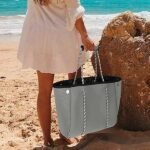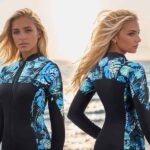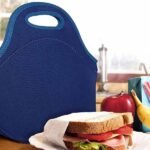Fishing is more than just a relaxing hobby; it’s a test of patience, skill, and endurance. And when you’re out battling the elements—whether it’s bone-chilling winds, icy water, or slippery fish—a good pair of gloves can make all the difference. That’s where neoprene gloves come in.
Yes, neoprene gloves are excellent for fishing, especially in cold and wet conditions. They’re waterproof, provide thermal insulation, and offer solid grip and protection from hooks, line cuts, and the elements. This makes them a go-to choice for serious anglers who fish year-round.
Imagine reeling in a trophy bass in sub-zero temperatures with bare hands. Not fun, right? Whether you’re casting in the surf, ice fishing in Alaska, or fly-fishing in a mountain stream, neoprene gloves can keep your hands warm, dry, and ready for action.
What Are Neoprene Gloves and How Are They Made?

Neoprene gloves are made from synthetic rubber that provides insulation and waterproof protection, making them ideal for wet, cold environments like fishing.
What Is Neoprene Material?
Neoprene is a type of synthetic rubber invented by DuPont in the 1930s. It’s widely used in wetsuits, laptop sleeves, and protective gear due to its:
- Water resistance
- Flexibility
- Insulating properties
How Are Neoprene Gloves Manufactured?
The manufacturing process involves:
- Bonding layers of neoprene with fabric linings (nylon/polyester)
- Cutting and shaping the material
- Stitching or gluing the layers
- Seam-sealing for waterproofing (in some models)
Key Features:
- Waterproof: Keeps hands dry while fishing
- Thermal Insulation: Traps body heat even in freezing temps
- Flexibility: Allows natural movement
- Grip Texture: Silicone/rubberized palms for control
Neoprene Thickness Options:
| Thickness | Ideal Conditions |
|---|---|
| 1mm | Mild, cool weather |
| 3mm | Cold, wet environments |
| 5mm+ | Extreme cold/ice fishing |
What Are Neoprene Gloves Used For in Fishing?

Primarily used to:
- Keep hands warm and dry
- Enhance grip
- Protect from injuries
- Cold Weather Protection: Acts like wetsuits for hands
- Grip and Handling: Textured palms prevent slips
- Hook Safety: Protective barrier against sharp objects
- Water Resistance: Repels water when handling gear
- Extended Comfort: Prevents numbness for longer sessions
What Is the Best Material for Fishing Gloves?

Depends on environment:
| Material | Pros | Cons | Best Use |
|---|---|---|---|
| Neoprene | Waterproof, warm, flexible | Bulky, limited breathability | Cold/wet conditions |
| Fleece | Soft, warm | Not waterproof | Mild, dry conditions |
| Wool | Retains warmth when wet | Slow drying, itchy | Cold/damp conditions |
| Synthetic | Lightweight, breathable | Minimal insulation | Hot/dry conditions |
| Rubber-Coated | Great grip, waterproof | Uncomfortable for long wear | Heavy gear handling |
Why Do Fishermen Wear Fingerless Gloves?

Fishermen wear fingerless gloves to maintain dexterity for tasks like knot-tying and casting while still protecting their hands.
Dexterity and Fine Motor Skills
- Fingerless designs allow for better tactile sensitivity, especially helpful when tying knots, feeling line tension, or baiting hooks.
Hybrid Designs
- Many gloves feature convertible designs with fold-over mittens for warmth, giving the best of both worlds.
Situational Use
- Fingerless neoprene gloves are ideal for fly-fishing, warmer days, or tasks requiring detailed handwork.
Breathability and Sweat Control
- By exposing fingers, these gloves reduce overheating and improve comfort during long sessions.
Layering Flexibility
- Some anglers layer fingerless gloves over thin liners for customized warmth and control.
Is It OK to Touch Fish with Gloves?
Touching fish with gloves is acceptable if the gloves are wet and smooth, as rough or dry gloves can damage the fish’s protective slime coating.
Fish Slime: The Protective Barrier
- Fish have a slimy coating that protects against disease and parasites. Dry or abrasive gloves can damage this layer.
Wet Gloves Are Better
- If you wear neoprene gloves, always wet them before handling fish to reduce friction and preserve the slime coat.
Conservation and Catch-and-Release
- Many anglers practice ethical fishing. Using soft, smooth, and wet gloves aligns with conservation best practices.
Avoiding Bare-Handed Harm
- Bare hands can be rougher than wet gloves if not moistened, especially when handling delicate species like trout.
Do Neoprene Gloves Keep Your Hands Warm While Fishing?
Yes, neoprene gloves trap body heat and keep hands warm, even in icy water or wet conditions.
Closed-Cell Structure
- Neoprene contains nitrogen gas bubbles that trap heat and block cold water from reaching the skin.
Wet Suit Principle
- Even when water enters the glove, body heat warms it, creating an insulating layer.
Lined vs. Unlined Neoprene
- Fleece-lined neoprene gloves offer extra warmth and comfort during long hours in cold conditions.
Fit Matters
- A snug fit reduces water circulation inside the glove, keeping hands warmer.
Tested Performance
- Anglers report fishing comfortably for 6-8 hours in temperatures as low as 20°F (-6°C) when wearing quality 3-5mm neoprene gloves.
Which Neoprene Gloves Are Best for Different Types of Fishing?
The best neoprene gloves for fishing depend on the environment and fishing method, such as ice fishing, fly fishing, or saltwater angling.
Ice Fishing
-
Needs: Maximum warmth, full-fingered, fleece lining
-
Recommended: 5mm+ thick gloves with waterproof seams
Fly Fishing
-
Needs: Dexterity, water resistance
-
Recommended: Fingerless or convertible neoprene gloves
Saltwater Fishing
-
Needs: Grip, salt-resistance, splash protection
-
Recommended: Textured palms, seamless wrist seals
Kayak or Boat Fishing
-
Needs: Paddling flexibility, grip
-
Recommended: Lightweight neoprene with open palms or finger slits
Shore or Surf Fishing
-
Needs: All-weather performance, water tightness
-
Recommended: Mid-weight (3mm) neoprene gloves with long cuffs
How to Choose the Right Neoprene Fishing Gloves for Your Needs?
Choose neoprene gloves based on thickness, glove style, lining, and fit according to your fishing environment and personal preferences.
Full Finger vs. Fingerless
-
Full Finger: Maximum warmth, best for cold weather
-
Fingerless: Better control, suited for detailed tasks
Lining Options
-
Fleece Lined: Extra warmth
-
Unlined: Lighter, more flexible
Fit and Sizing
-
A snug but comfortable fit prevents water pooling inside
-
Always refer to manufacturer size charts before purchase
Budget vs. Premium
-
Premium brands may cost more but offer better stitching, warmth, and water-sealing
-
Budget options still work well for casual or seasonal use
Should You Choose Neoprene Gloves for Fishing?
Absolutely. If you fish in cold, wet, or variable weather, neoprene gloves are one of the best investments you can make. They’re durable, waterproof, and provide much-needed warmth and grip to help you perform better and stay longer on the water.
Whether you’re a weekend warrior or a professional angler, the right pair of neoprene gloves can transform your fishing experience.
Looking to Custom Manufacture Neoprene Fishing Gloves?
At Szoneier, we specialize in manufacturing custom neoprene products, including high-performance fishing gloves. With years of experience, free design services, free samples, and low minimums, we help brands and buyers create logo-customized neoprene gloves that stand out in the market.
Contact us today to get a free quote and start customizing your neoprene glove project!











